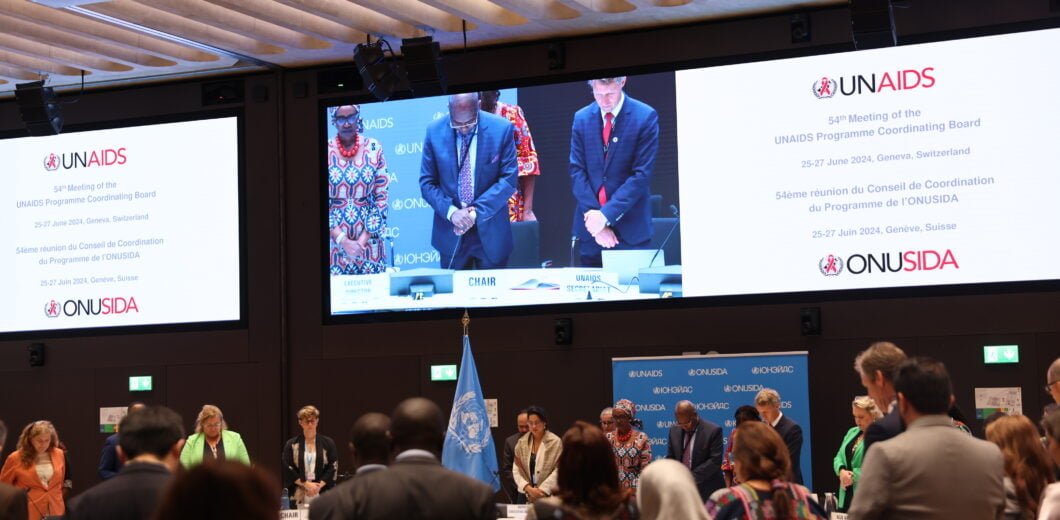Thank you, Chair.
On behalf of the NGO Delegation, I sincerely thank every one of today’s panellists, and extend special gratitude to our community speakers, who have described so bravely where we have come from, and what we need for the future.
With an Advisory Group of 25 civil society and community organisations, our delegation has put forward a set of principles which we see as essential to sustainability.
First, Sustainability requires a focus on ensuring accelerated progress in addressing punitive legal and policy environments, stigma and discrimination, and gender inequality and violence as non-negotiables, which must be reflected in national sustainability plans, and in the decision points for this meeting. Today you gave Edwin Bernard a standing ovation. I appeal to all delegates to remember his words when we go into the drafting room.
We also heard from Ganna Dovbakh about the harm caused by political leaders who propagate hate, homophobia and the war on drugs. We urge governments to remove laws and policies that undermine effective responses to HIV – and critically in the current context of rising anti-rights mobilisation – to actively resist complicity with groups or individuals calling for further curbs on people living with HIV, on key populations or on access to HIV services and information.
Secondly. Increased and sustained funding are also critical, both donor and domestic, and as Keren Dunaway made so clear, the provision of long-term, sustainable and core funding for women-led, youth-led and community-led responses. sustainability plans must show increased investments in key population programming, as well as in financial protection for people living with HIV, key populations, and other communities most affected. To those working on the sustainability planning process, we urge you to ensure that these elements are front and centre. Again, it’s critical that they feature with the strongest possible language in the outcomes from this meeting.
Our final point. Florence Riako-Anam made a powerful comment on how sustainability must not come at a cost to service quality, and Cindy Kelemi described her fears that if we integrate the HIV response into an ailing system, we run the risk of eroding the gains we’ve so far achieved. The NGO delegation identifies a critical need to explicitly recognize the risks that integration can pose for people living with HIV, key populations, and other communities most affected. Governments must actively engage communities in decision-making, planning, implementing, and monitoring the HIV, UHC and health responses, and must take all necessary steps to ensure continuity in and scale up of HIV services for all who need them. Again, let the decisions emerging from this meeting reflect these points.
to close, At this PCB we heard of an 11 year old boy bedridden for 8 months, until he finally received the HIV test that means he is here today. We heard of a young mother writing a farewell letter to her 8 year old boy – a child the same age as my son. We heard about a gay man in a hospital waiting room where health workers denied him access to PEP.
To finish with some wise words I heard from the esteemed Dr Ruth this afternoon. Whenever we talk about sustainability, we need to talk about lives.
Thank you

